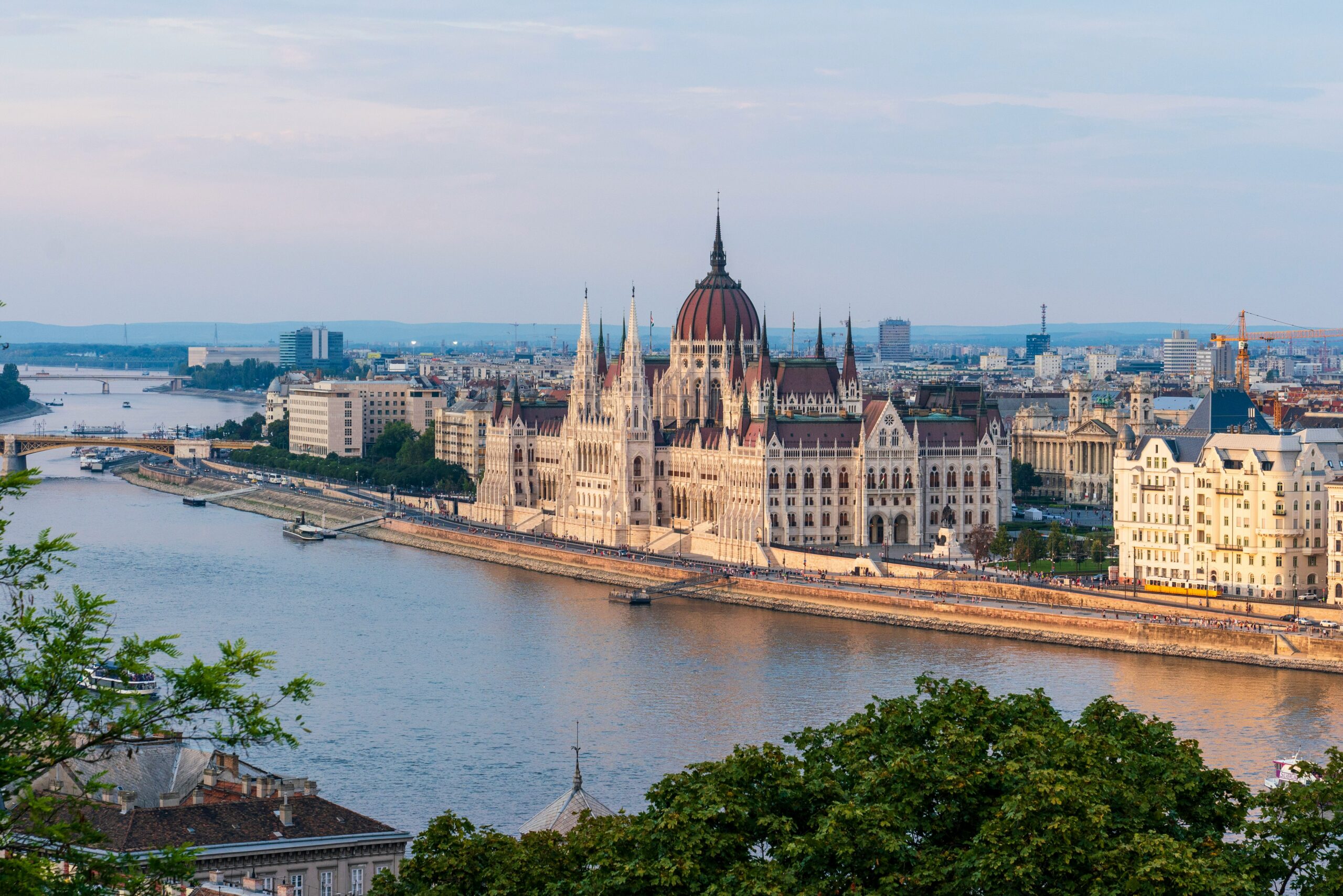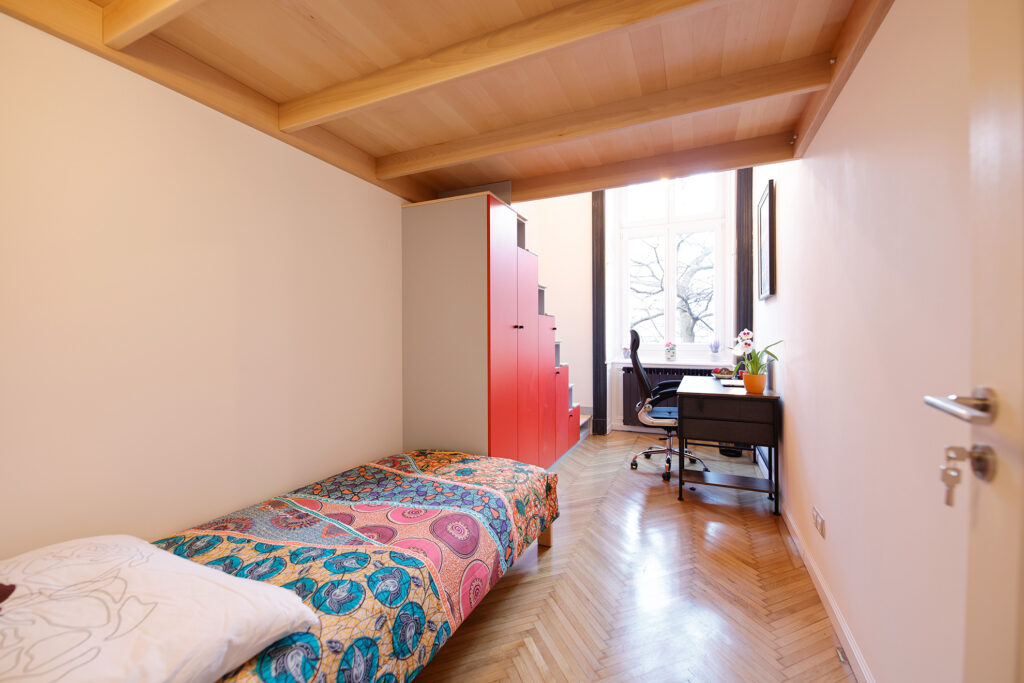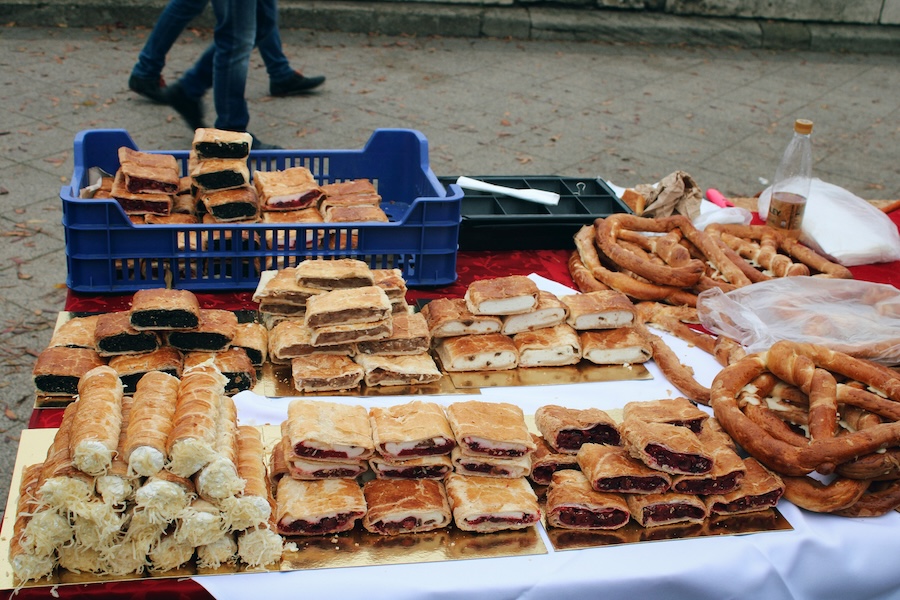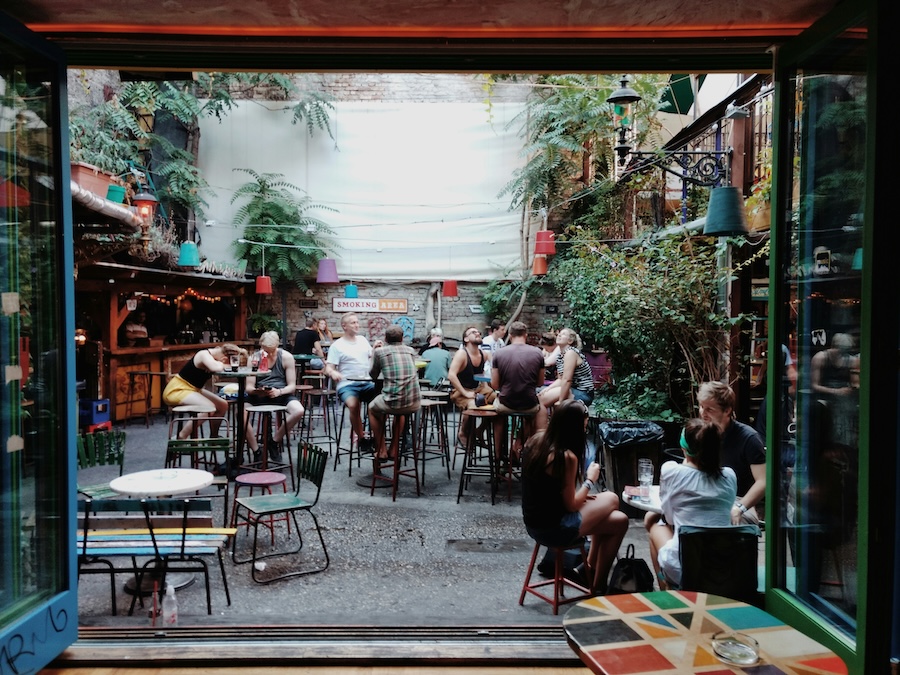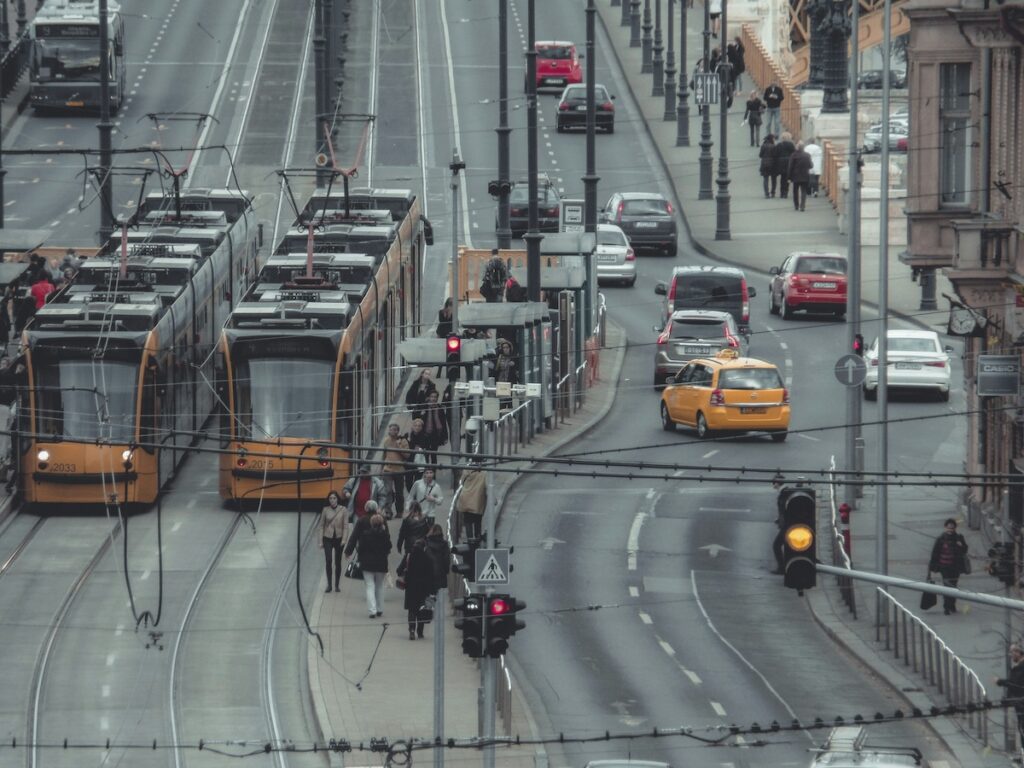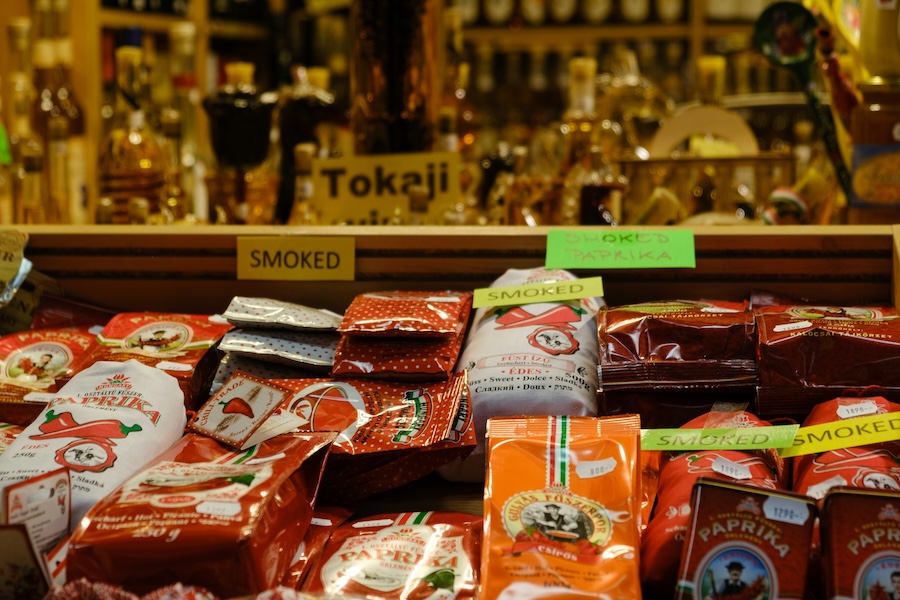Budapest is an excellent choice for international students wishing to study in an affordable city with quality education, rich culture, and vibrant nightlife. Despite these advantages, Budapest has minor disadvantages, such as rising food costs, language barriers, minor safety concerns, and below-average public cleanliness.
The monthly living costs of Budapest are between 400,000 to 475,000 HUF (appr. 1000-1200 EUR or 1080-1300 USD). This estimate includes rent, utilities, food, public transportation, and leisure activities.
Rent (incl. utilities) amounts to appr. 50%, food amounts to 10% of monthly living costs. Public transportation costs students 3450 HUF (8.7 EUR / 9.4 USD) monthly.
Nightlife is excellent in Budapest with many ruin pubs, bars, and nightclubs in the city centre. Budapest is generally safe for students – even during nighttime -, however, some parts of the city are considered less safe. Petty crimes like theft tend to happen in these areas.
The best universities in Budapest are the following.
- Eötvös Loránd University (ELTE): humanities, social sciences
- Budapest University of Technology and Economics (BME): engineering, technology.
- Corvinus University of Budapest: business, economics
- Semmelweis University: medical studies
Budapest has many incredible sights and attractions. The most famous ones are the following.
- Buda Castle
- Parliament Building
- Fisherman’s Bastion.
- Citadel
- Széchenyi Thermal Bath
- Heroes’ Square
Hungarian culture is rich in traditions and known for its distinctive cuisine, music, and dance. Hungarians value family, and cultural heritage, creating a welcoming environment for visitors. Budapest is a vibrant mix of tradition and modern, making it a fascinating city to explore.
What are the advantages of studying in Budapest?
The main advantages of Budapest for international students are the following.
- The city is remarkably affordable. Especially the quality of life it offers in exchange.
- The city has an amazing nightlife.
- The city has a vibrant international life with many international students.
- The public transport is punctual and of high quality.
- The culture is rich.
- The city has a beautiful history and many wonderful sights.
- Hungarian cuisine is delicious and exciting.
However, Budapest also has its disadvantages.
What are the disadvantages of studying in Budapest?
One of the main disadvantages of Budapest is the increasing living costs, particularly for food and entertainment. This can stretch a student’s budget more than expected. Although cheaper than many Western European cities, Budapest is not the cheapest option in the region.
Furthermore, there are some language barriers in Budapest. While younger Hungarians speak English well, not everyone is fluent in English.
Thirdly, there are some public safety problems across the city. Some areas should be avoided late at night, as petty crimes such as theft can happen. It’s advisable to stay informed and cautious.
Lastly, the streets and public spaces are quite dirty, which can decrease the city’s overall charm for some.
What is the monthly cost of living in Budapest for a student?
The monthly cost of living in Budapest for students is approximately 400,000 to 475,000 HUF (1000-1200 EUR or 1080-1300 USD). This includes rent, utilities, food, public transportation, and free time activities. Monthly living costs vary widely based on the following items.
- lifestyle
- eating habits (eating out vs cooking at home)
- spending habits
- drinking habits
- the type of accommodation
The official currency in Hungary is the Hungarian Forint (HUF). While the Euro is not officially used, it’s accepted as Hungary is a member of the EU. However, it’s generally more practical to use HUF for everyday transactions.
How much does rent cost in Budapest?
Rent costs around 120,000 HUF (320 EUR/345 USD) for a room in a shared flat, and 300,000 HUF (800 EUR/860 USD) for a private apartment. Student residences like Studentrooms.hu are a cost-effective and social option, often preferred by international students.
Rent in Budapest varies significantly depending on several factors, here are the most important ones.
- Location within the city: central districts like districts V., VI., VII., VIII., and IX. are generally more expensive.
- Type of heating: central heating can save on utilities, but it makes the monthly rent higher.
- Age of the flat: newer buildings might offer more amenities but at a higher cost.
- Type of accommodation: renting a whole flat is more expensive than renting a room, or staying in a student residence.
You may ask: What are the best districts to live in for students? The best districts for students to live in Budapest are the following.
- District V: the most central district, close to many universities.
- District VI and VII: known for its vibrant nightlife and cultural scene.
- District VIII: a revitalized district of Budapest, which used to be dangerous, but now is one of the best for students.
- District IX: a more affordable & upcoming area with a great local vibe.
These districts are all central and are close to all the main universities of Budapest, major tourist attractions, central public transport hubs, and party places. Plus, there are many places to do grocery shopping there.
Should I rent an apartment or a student residence in Budapest?
An apartment is great for those students, who like being alone in their personal space, and who can afford higher rent. If you have a bigger budget and enjoy privacy, then this option is for you.
But if you like meeting new international students, are open to living with a community, and have a tighter budget, then a student residence is the perfect choice. This is a great way of making new friends and having an even better experience in Budapest.
Given our expertise, we recommend student residences for their social atmosphere, convenience, and their support for students’ needs.
How much does food cost in Budapest?
Food in Budapest costs around 40,000 HUF (107 EUR/115 USD) to 80,000 HUF (214 EUR/230 USD) monthly. Here is a more detailed breakdown of the estimated monthly costs of international students in Budapest.
- Average meal cost: 1,500-2,500 HUF (4-7 EUR/4.3-7.5 USD)
- Average grocery shopping: 15,000-25,000 HUF (40-67 EUR/43-72 USD)
- Breakfast with coffee: 500-1,500 HUF (1.3-4 EUR/1.4-4.3 USD)
- Lunch: 1,500-2,500 HUF (4-7 EUR/4.3-7.5 USD)
- Dinner: 2,000-3,000 HUF (5.4-8 EUR/5.8-8.6 USD)
- Average junk food meal: 1,000-2,000 HUF (2.7-5.4 EUR/2.9-5.8 USD)
Prices depend on where you shop, how much you shop, where you dine, and how often you eat out. Cheapest shopping options include local markets and supermarkets like Aldi and Lidl.
While it is tempting to treat yourself to delicious (but a bit greasy) Hungarian food, junk food, and alcohol, we recommend you frequently cook at home instead. Especially if you live in a student residence. On the one hand, it saves you a ton of money. And on the other end, it’s an excellent social activity with other international students.
Although studying abroad is all about new experiences, friendships, adventures, parties, and gastronomy, it’s wise to visit the gym sometimes.
How much does alcohol cost in Budapest?
Local beers in bars and pubs typically range from 1100 to 1200 HUF (appr. 2.70 to 3 EUR / 2.90 to 3.20 USD). Cocktails generally cost around 2000 HUF (5 EUR / 5.36 USD). These prices vary based on the location, the alcohol brand, and the type of establishment.
Here are the prices of the most common alcoholic beverages in Budapest.
- Local beer: 1100-1200 HUF (2.70-3 EUR / 2.90-3.20 USD)
- International beer brands: 1500-2000 HUF (3.80-5 EUR / 4.70-5.36 USD)
- Wines: 500-700 HUF (1.3-1.8 EUR / 1.4-2 USD) per dl.
- Cocktails: from 2000 HUF (5 EUR / 5.36 USD)
- Shots: 500-1,000 HUF (1.3-2.7 EUR / 1.4-2.9 USD)
Central bars and popular places, like ruin pubs typically charge more than the average. However, the quality is higher, as well.
Is nightlife good in Budapest for students?
Yes, nightlife in Budapest is excellent for students seeking an unforgettable experience. The city’s bars, ruin pubs, party places, and nightclubs in Districts VI. and VII. offer affordable drinks and a vibrant atmosphere. Notable spots include Szimpla Kert, Instant, and Fogas Ház.
Public transport is also excellent in their vicinity. Night buses and Tram line 6 ensure transport till dawn.
As a general rule of thumb, always mind your surroundings & belongings. Avoid trouble if possible, even though Budapest is a safe city.
How much does public transport cost in Budapest for students?
A monthly public transport pass for students costs 3450 HUF (8.7 EUR/9.4 USD). The city has a great public transport system with many types of vehicles. The lines are punctual, and some (especially buses) even operate at night. Budapest offers the following types of public transport vehicles.
- Buses
- Trams
- Metro lines (there are 4 metro lines in the city)
- Trolleybuses
- Suburban railways (HÉV).
Night buses and Tram Line 6 ensure the city remains accessible after dark. But if you are too tired or don’t want to wait 30-60 minutes for a bus, a taxi is always a comfy alternative.
How much does a taxi cost in Budapest?
An average taxi ride costs around 4000-7000 HUF (10-17.65 EUR / 10.71-19 USD) in Budapest depending on the distance and time it takes to reach your destination. Here are the taxi fares in Budapest.
- Base fare: 1100 HUF (2.7 EUR/3 USD)
- Time-based fare unit: 110 HUF/min (0.27 EUR/min / 0.29 USD/min)
- Distance-based fare unit: 440 HUF/km (1.1 EUR/km / 1.19 USD/km)
The official, reliable taxi companies in Budapest are the following.
- Bolt
- Főtaxi
- 6×6 Taxi
- Taxi 4
- City Taxi
- Uber
Uber was banned in Budapest for years but has been recently reinstated in cooperation with Főtaxi.
Beware of independent, unbranded taxi drivers, who tend to rip off tourists and foreigners! If the taxi charge looks more expensive than what you see here, then there’s a high chance they try to overcharge you.
Applications like Bolt and Uber, ensure fare transparency. Opt for these taxi companies instead of relying on your luck! Especially if you are under the influence of alcohol.
Is Budapest safe for students?
Yes, Budapest is generally safe for students. But as for public safety, take some common sense precautions to avoid petty crimes. Certain areas, like the following, should be approached with caution, especially at night.
- District X.
- Hős utca in District VIII.
- Deák Ferenc tér
- Nyugati Pályaudvar
- Keleti Pályaudvar
If you travel through the city in groups, or with locals, then it’s less likely you will get into trouble. Especially in the proximity of universities in Budapest. They are all in the safe parts of the city.
What are the main sights and landmarks in Budapest?
Here are some of the most popular sights, landmarks, and attractions in Budapest.
- Buda Castle: a historic castle and palace complex of the Hungarian kings.
- Parliament Building: one of the largest parliament buildings in the world.
- Fisherman’s Bastion: offers stunning views over the city.
- Citadel: the highest natural point in Budapest. And gives the best scenery over the city.
- Széchenyi Thermal Bath: Europe’s largest medicinal bath.
- Heroes’ Square: iconic square featuring the Millennium Monument.
You can learn about Hungarian history and culture by visiting these landmarks and museums.
What are the best universities in Budapest?
The best universities of Hungary in Budapest that offer the highest quality education are the following.
- Eötvös Loránd University (ELTE): humanities, social sciences
- Budapest University of Technology and Economics (BME): engineering, technology
- Corvinus University of Budapest: business and economics
- Semmelweis University: medical studies
These universities are all in the centre of Budapest. But to fully enjoy student life, make sure you won’t travel much to your classes from your flat/room daily. You can easily avoid this by renting a student room in the proximity of your university.
What should I do in the first week of my studies in Budapest?
In the first week of your studies in Budapest the most important task is to acclimatise to your new home. Take your time! Find local stores in your proximity to know where to buy food and groceries. Take a tour in the neighbourhood. Visiting your university can further increase the familiarity of your new surroundings.
And most importantly: take care of your most important administrative tasks!
Don’t panic if you don’t have all the information! If you encounter any difficulties, ask the International Office, contact the Erasmus Student Network (even if you’re not an Erasmus student) of your university, or ask your roommates! They will help you. 🙂
The more you know your new home, the less stressful it will become.
The first 1-2 months will likely bring some minor cultural shocks to you. Cultural shock is a feeling of uncertainty, stress, confusion, and even anxiety that students experience when moving to a new country that has a different culture. The bigger the cultural differences, the higher (and/or longer) the cultural shock.
Having a walk around Budapest and visiting the most popular landmarks is always a good idea to relieve some of your stress!
What is Hungarian culture like?
Hungarian culture is rich in traditions and known for its distinctive cuisine, music, and dance. Hungarians value family, cultural heritage, and the love for food. Budapest, as the cultural heart of Hungary, offers a vibrant mix of traditional and modern influences, making it a fascinating city to explore.
Hungarians tend to be grumpy and impatient at first. Especially if they talk to a foreigner. But don’t take it personally! Hungarians aren’t mad at you, they’re bothered by the fact that they don’t speak English well. And not because they don’t like you!
But if they get to know you after some time, they’ll become more friendly. Unfortunately, the language barrier is a common thing in Hungary (but a bit less problematic in Budapest).
What is the official language of Hungary?
Hungary’s official language is Hungarian, which belongs to the Uralic language family. It’s also spoken widely in neighbouring countries like Slovakia, Romania, Ukraine, Serbia, Croatia, and Austria.
Can people speak English well in Budapest? Yes, English is widely spoken in Budapest, especially among the younger population and in tourist-centric areas. For example, when you want to order some genuine Hungarian food (e.g. street food).
What is Hungarian cuisine like?
Hungarian cuisine is flavorful, sometimes hot & spicy with paprika being a signature ingredient. Dishes feature a variety of meats, vegetables, and spices. Popular dishes in Hungarian cuisine include the following.
- Gulyásleves: the Famous Hungarian goulash soup made with beef and paprika.
- Pörkölt: a rich stew, usually made of pork meat, but also of chicken and beef.
- Hortobágyi palacsinta: savoury crêpe filled with beef meat.
- Chicken paprikash: baked chicken served with creamy paprika sauce and homemade pasta.
Hungarian food tends to be greasy and spicy, so watch out for the quantities!
Also, characteristic foods available in local stores include salami (szalámi) and túró rudi. Salami is a famous Hungarian sausage consisting of fermented and air-dried meat, typically pork. Salami is mostly used in sandwiches in Hungary. Túró rudi is a popular chocolate-coated cottage cheese sweet snack.
What other places can I travel to in Hungary?
Beyond Budapest, Hungary has several beautiful cities and destinations. The best destinations in Hungary include the following.
- Eger: city in the north-east, famous for its castle, thermal baths, and historic wine region.
- Szeged: city in the south, known for its vibrant cultural scene and Open-Air Festival.
- Pécs: it’s a UNESCO World Heritage city in the south that is rich in Roman and Medieval architecture.
- Lake Balaton: this lake is Europe’s largest freshwater lake, popular for summer vacations and festivals like Balaton Sound.
- Hollókő: it’s a traditional village that preserved folk traditions, offering a glimpse into genuine rural Hungarian life.
We hope this introductory guide provided you with a comprehensive overview of studying in Budapest and the student life! Whether you’re here because of the education, the history, or pálinka (a famous Hungarian alcoholic fruit spirit), Budapest promises an unforgettable international student experience!



